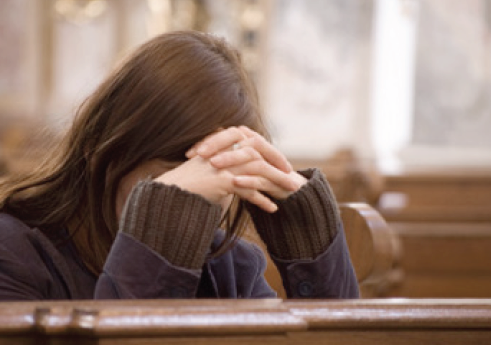Contemplate the words of CS Lewis from The Joyful Christian: “There are no ordinary people. You have never talked to a mere mortal. Nations, cultures, arts, civilization — these are mortal, and their life is to ours as the life of a gnat. But it is immortals whom we joke with, work with, marry, snub, and exploit — immortal horrors or everlasting splendours.“
“This does not mean that we are to be perpetually solemn. We must play. But our merriment must be of that kind (and it is, in fact, the merriest kind) which exists between people who have, from the outset, taken each other seriously — no flippancy, no superiority, no presumption. And our charity must be a real and costly love, with deep feeling for the sins in spite of which we love the sinner — no mere tolerance or indulgence which parodies love as flippancy parodies merriment. Next to the Blessed Sacrament itself, your neighbour is the holiest object presented to your senses.”
Thus, due to the dignity of our neighbour please be mindful of the Holy Mass Etiquette here in St John’s. How we act at Mass should help us pray, listen and worship as well as help our neighbours do the same.
We should remember:
- That Mass is holy.
- To be on time. It is distracting when people arrive late to Mass. If you are delayed or late, be thoughtful of others so as not to disturb those already into the prayer of the Mass.
- To turn mobile phones off.
- To remove chewing gum from your mouth AND dispose of it in a PROPER manner (not on the floor or pews).
- To genuflect toward the tabernacle before sitting down. Genuflecting is bending the right knee to the floor and rising up again. If one is physically incapable of genuflecting, they should instead make a profound bow. The purpose of this is to show respect to our King and to acknowledge His Presence in the tabernacle.
- To sit quietly. Once we have found a seat, we should sit or kneel quietly to pray or meditate. This is not the time to socialise with our friends. If we must talk quietly, we should make it brief. The purpose of this is again to show respect for the Blessed Sacrament, and to show that WE BELIEVE HE IS TRULY PRESENT—Body, Blood, Soul an Divinity! If we do not believe this, we need to be considerate of those who do, and use the quiet time to contemplate this Truth.
- To stay until the end of Mass. Judas was the first one to leave Mass early at the Last Supper. Let us not follow in his footsteps. Mass ends when the priest says: “The Mass is ended, go in peace” and we say: “Thanks be to God.” It is most polite to stay in our pews until the end of the recessional hymn. Emergencies will arise from time to time; in such cases, we should be as discreet as possible so as not to disrupt the Mass that has not yet ended. Courtesy and manners cost you nothing.
- To reverently, gently, and silently leave the church. Again, this is to show respect of our Lord in the Blessed Sacrament. There, is a custom where some stay several minutes after in thanksgiving for the Eucharist they have just received; the church should also be quiet out of respect for this deep union taking place.
We can talk all we want once we are outside, and we are encouraged to meet each other at the coffee & tea in the hall after our Sunday Mass.
Canon Mulholland

